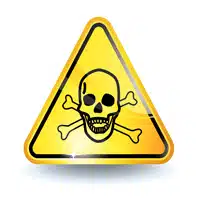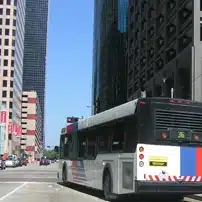Roadways can be crowded and congested, which can lead to many frustrated drivers. In some cases, aggressive driving and road rage incidents can occur. However, road rage is more than just aggressive driving, it is a violent and intentional act to cause physical harm.
Drivers that tend to exhibit aggressive driving behaviors escalate their actions to the level of road rage for a number of reasons. Often, drivers who have road rage have not learned alternative ways of dealing with their emotions.
Common causes of road rage car accidents include:
- Heavy traffic: Traffic tests all drivers’ patience.
- Distracted drivers: It is likely that you have seen a driver on their phone or otherwise distracted. Besides being illegal, distracted driving threatens the safety of everyone on the road, and this is enough to cause a road rage incident.
- Running behind schedule: The desperate feeling of being late to a meeting or appointment can cause road rage.
- General disregard for the law: Drivers who think the rules do not apply to them and routinely practice aggressive driving tactics can easily become enraged.
Some drivers feel protected by the anonymity of being in a car sealed off from others around them. A driver can threaten others with their aggressive behavior and feel confident that they will not be confronted or held accountable for their actions.
What Are the Signs of Road Rage?
A driver that is experiencing road rage may exhibit these aggressive driving behaviors:
- Tailgating or following a driver that offended them.
- Honking, yelling, and gesturing.
- Flashing headlights.
- Blocking traffic lanes or purposely cutting other drivers off.
- Speeding through traffic.
- Weaving in and out of lanes without signaling.
- Driving over shoulders, sidewalks, or medians.
- Intentionally ramming another car.
- Getting out of the vehicle to confront another driver.
Road rage can be triggered by the irresponsible behavior of other drivers and other factors out of their control. Usually, someone who is prone to road rage is already very impatient, stressed, or aggravated and may exhibit violent behaviors in other areas of their life.
How Can Road Rage Be Prevented?
Fortunately, there are ways to prevent road rage:
- Get a lot of rest. Insufficient sleep contributes to stress and makes it harder to stay in control. Everyone should make sure they are getting enough rest each night.
- Allow extra travel time. Leaving early means a little extra traffic will not derail the day. All drivers should make it a routine to leave earlier than usual, especially in the morning.
- Take a deep breath and count to 10. In heavy traffic, drivers can use this method to give themselves more time to calm down. They should focus on their breathing and not whatever is aggravating them.
- Play calming music. Music can be calm and uplifting. Music may help drivers stay positive, despite traffic.
- Start with the right attitude. Driving is not a game where someone wins. Driving safely is a top priority.
- Be a courteous driver. Drivers should always use their turn signals, merge with plenty of room, move out of the left lane to let other drivers pass, and they should not tailgate.
- Do not make rude gestures. All drivers should refrain from gesturing and honking, as this could escalate a situation and lead to a road rage incident.
What Should I Do if an Angry Driver Confronts Me?
A study by the AAA Foundation for Traffic Safety found that aggressive driving behaviors are involved in 56 percent of all fatal crashes. Over a seven-year period, road rage incidents caused 12,610 injuries and at least 218 deaths. Being the target of an angry aggressive driver can be traumatic and even life threatening, so it is important to know what to do if it happens to you:
- Do not engage with the other driver. Do not engage with them, stay cool, and resist the urge to retaliate with gestures, yelling, flashing headlights, or honking. Do not stare them down as well, in fact, it may be best to avoid eye contact altogether.
- Stay away from the angry driver. Stay clear of an angry driver by giving them plenty of room. If you can, let them pass so that they are in front of you where they can do less damage. Then, put as much distance as possible between your car and theirs. Under no circumstances should you pull over and get out of the car to confront them.
- Call for help. If the other driver escalates the situation by trying to follow or confront you, call for help. If you have a cellphone, call the police, and if you do not, then drive to a busy place where you can get help, such as a shopping center, police station, or hospital. Honk your horn to get someone’s attention for help, but do not leave your car. Never drive to your house.
- Remember their information. Try to remember as much information about their vehicle as possible, such as the make and model and license plate number. Identifying marks such as dents or scratches from previous accidents can also be helpful.
Wilmington Car Accident Lawyers at Rhoades & Morrow Provide Legal Assistance to Those Injured in Aggressive Driving and Road Rage Accidents
If you have been injured in an aggressive driving or road rage incident, our Wilmington car accident lawyers at Rhoades & Morrow can help you explore your options. Call us at (302) 427-9500 or complete our online form to schedule a free consultation. We have offices in Wilmington, Bear, Milford, and Lewes, Delaware. With offices in all three counties of Delaware, we serve clients throughout the state.





